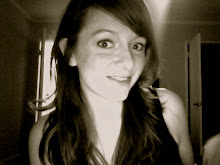
I'm watching the BBC "Shakespeare Retold" series on Netflix. Tonight, I watched the "Much Ado About Nothing" episode.Much to the dismay of old, more romantically pragmatic Faye, these days I'm feeling secretly hopeless romantic-y. Whaa? AND I'm on a dating moratorium. For who knows how long. I have decided to date Shakespeare for a bit; because, I'm nerdy like that.I was never the girl who dreamily imagined my wedding day or had lots of crushes on boys. I was terrified, since before I ever dated, of losing myself in relationships. For reals; I was the youngest cynic ever.Love. Love. Love. Who knows what's real and what isn't real out there; I'm not sure what I believe in these days, and I guess it's not time to know. "More will be revealed," I am often being told these days. Wisdom. And so maybe stuff like this only exists in literature, but I find the words of Beatrice hopeful for the kind of relationship I would secretly one day hope is for reals. Secretly. Maybe. Okay, yes. I duuuunnnno."I love you with so much of my heart that none is left to protest."- William Shakespeare, Much Ado About Nothing, 4.1
SONNET 116
Let me not to the marriage of true minds Admit impediments. Love is not love Which alters when it alteration finds, Or bends with the remover to remove: O no! it is an ever-fixed mark That looks on tempests and is never shaken; It is the star to every wandering bark, Whose worth's unknown, although his height be taken. Love's not Time's fool, though rosy lips and cheeks Within his bending sickle's compass come: Love alters not with his brief hours and weeks, But bears it out even to the edge of doom. If this be error and upon me proved, I never writ, nor no man ever loved.
Analysis (from Faye's lurve schema):
I like the analysis below; however, it is my opinion/feeling that, whether over lifetimes or what not, the purpose behind a romantic relationship always becomes complete at some point (probably!). So, I don't know if I could say that the only love that is true is also an ever fixed mark; unless we can say we're talking about love in general and not necessarily romantic love. As hopeless romantic-y as I am, I don't know about forever. It feels presumptuous (for me).
Analysis (from Wikipedia):The poet begins by stating he should not stand in the way of true love. Love cannot be true if it changes for any reason. Love is supposed to be constant, through any difficulties. In the sixth line, a nautical reference is made, alluding that love is much like the north star to sailors. Love should not fade with time; instead, true love lasts forever. When it says "Love alters not with his brief hours and weeks, But bears it out even to the edge of doom," Shakespeare is saying that love is timeless, and only death can do it part.The last two lines employ a paradoxical conceit. If there is no such thing as true love, the poet says that neither has he ever written, nor has anyone ever experienced true love. However, because the poem has been written, it means the poet, ultimately, is right about true love.




